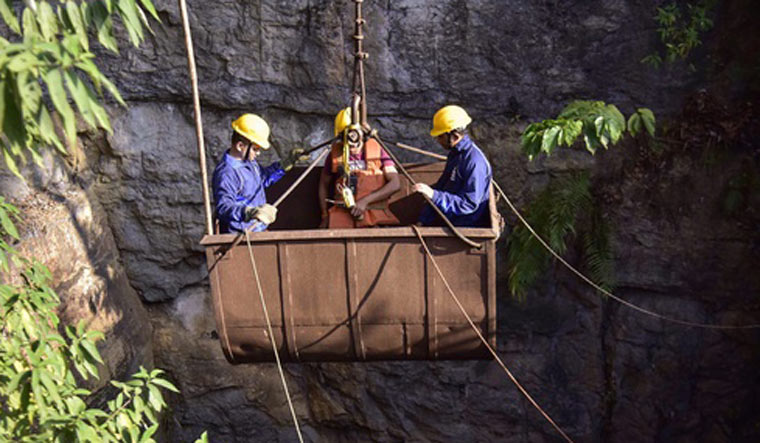Some of the world's biggest coal reserves lie underneath India's feet—buried deep within our forests, under rivers and inside mountain ranges. For years, successive governments played hide-and-seek with the idea of exploiting them for maximum economic gains, contemplating, hesitating and finally settling for an uneasy balance between economic needs and environmental pleads.
Aatmanirbhar Bharat may have finally put paid to that difficult equilibrium once and for all.
“Auction of mineral blocks is important...to ensure interrupted supply of raw materials for downstream industries,” remarked union minister for coal and mines, Pralhad Joshi on Tuesday.
“Commercial mining auction is the boldest reform in this sector that the industry has ever seen.
Joshi's reference is to the dramatic about-turn in mining initiated by prime minister Narendra Modi to prop up the flailing economy post the pandemic. Announced by finance minister Nirmala Sitharaman amongst the many tranches of structural reforms in May, it was set in motion with the commercial auction of 41 mining blocks on June 18.
Private players, including foreign entities (except those sharing land borders with India, an attempt to keep out China) can bid, with liberal terms like end use flexibility, adjustment of upfront amount against future royalties payable to the government, de-restriction of sectors and freedom in end-use allowance.
Addressing the auction launch event in June, PM Modi had remarked that the coronavirus pandemic has taught India a lesson, but that the nation will use it as an opportunity.
Ironically, Modi had been a big champion of renewable and eco-friendly power sources, throwing his weight behind solar energy in particular, as well as speed-tracking the adoption of electric mobility. But the plummeting GDP and the extend of the lockdown pains seem to have prompted him to go for the lowest hanging fruit—the nation's vast coal reserves, which are amongst other bonanzas to be mined up.
As per 2016, the last year for which official government figures are available, India's mining industry is valued at at 2.8 lakh crore. India mines a treasure trove of 95 minerals, ranging from bauxite and chromium to lignite and even gold (negligible quantities and on the only item on a declining rate, though). But it is a heavy weight when it comes to coal—India is not only the second largest producer of coal (63 crore tonnes in 2016), it is also the second largest importer. Sectorally, mining is also the second biggest generator of employment, after construction.
“For mining sector to contribute significantly to the economy in line with the prime minister's vision of a Aatmanirbhar Bharat', it is imperative to convert abundant mineral resources into reserves and boost production,” remarks Sumit Deb, chairman and managing director of the National Mineral Development Corporation (NMDC).
The government's roadmap seems pretty clear—go in for a large scale exploitation of coal and other mineral reserves, letting in private sector and FDI to scale up, gaining material traction, even while keeping cumbersome environmental questions at bay with the soon-to-be amended Environment Impact Assessment (EIA), no matter the storm of opposition that it may spark or the longterm impact of pollution.
The reason is the easy enough bounty on offer. For instance, just the first round of commercial auctions, it is estimated, will spawn about Rs 33,000 crore of dividend to the government. It is also, in due course, expected to cater to India's ever-growing energy needs—for all the talk of renewable energy, a larger chunk of electricity in India is still produced by thermal power plants running on coal.
The focus on mining also fits in neatly with the Aatmanirbhar narrative.
For example, Modi had remarked at the private auction launch event, “To make India self-reliant, major steps are being taken. Those products we import now, we will be (their) major exporters in the near future.”
No wonder Joshi is promising more.
“500 mining blocks will be offered (in due course),” he said at a FICCI event, adding, “There will be more industry-friendly reforms in the mining industry soon.”



